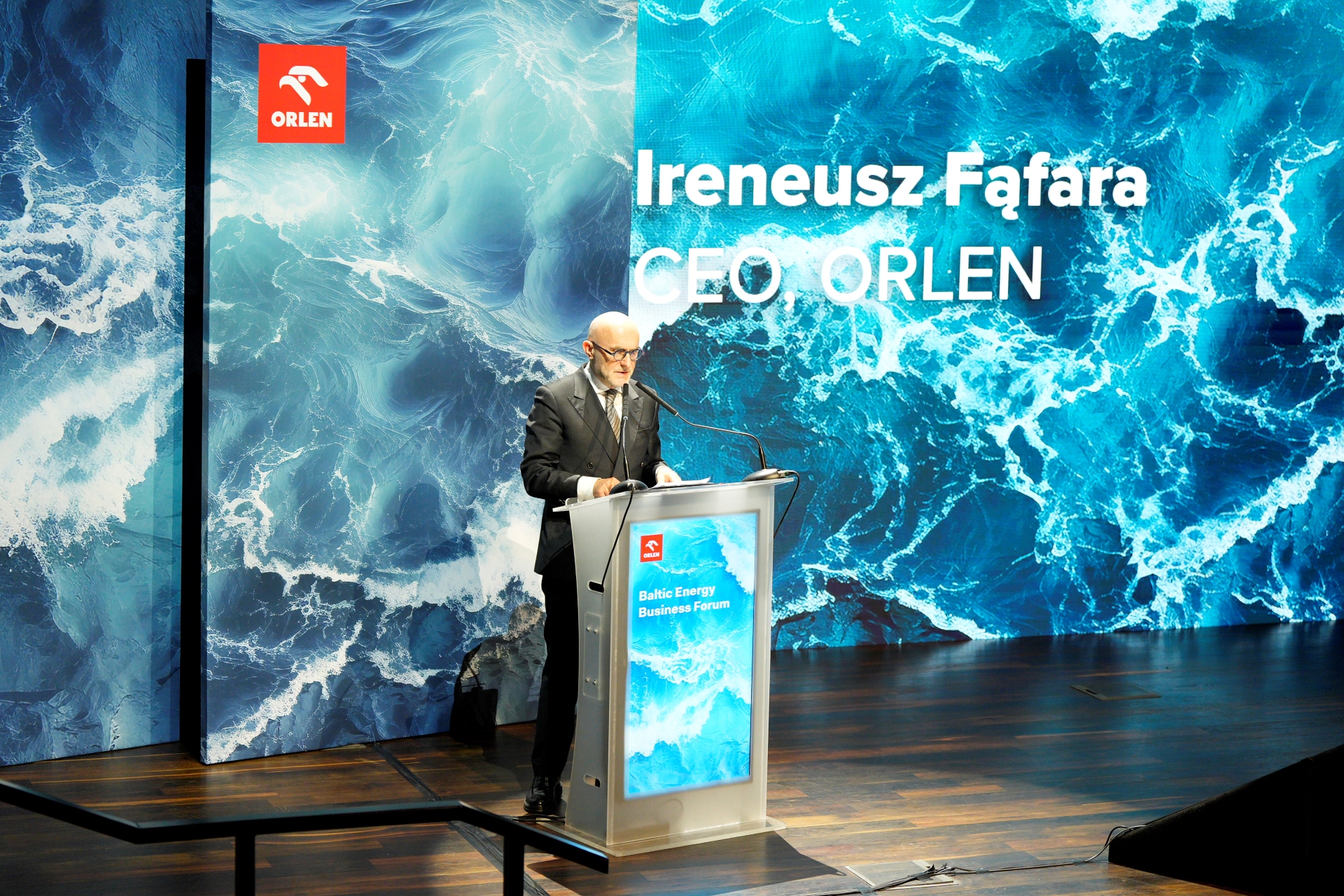The ORLEN Group and the S&P Global agency have published a report highlighting the potential benefits of co-operation between the Baltic countries, including Germany. It focuses on stable electricity supply at affordable prices, full independence of the Baltic Sea region from Russian supplies and clean air thanks to joint projects to develop new technologies, including hydrogen.
The report also includes a comprehensive analysis of the progress and challenges of the energy transition in eight European countries. The assessment outlines not only the current state of decarbonisation in Poland, Germany, Denmark, Sweden, Finland, Lithuania, Latvia and Estonia, but also the potential for increased cooperation. Specific areas are identified in which cooperation to accelerate the energy transition and reduce CO2 emissions makes sense.
“We are actively shaping the future of the energy sector in the Baltic Sea region, which is critical to Poland’s energy security and economic future, as well as to the broader European energy landscape. By 2035, we plan to invest up to PLN 380 billion, among others, in renewable energy projects, including offshore wind, as well as in gas infrastructure and new technologies, particularly energy storage solutions. By working together with regional partners, we can fully harness the region’s potential and deliver more secure, affordable, and cleaner energy for Poland and our neighbours,” said Ireneusz Fąfara, CEO and President of the ORLEN Management Board.
The report, “Baltic Cooperation: Momentum for Energy Transition”, highlights the region’s strategic importance to Europe’ decarbonisation, given that it accounts for more than a third of the EU’s total energy consumption and emissions. The combined potential for renewable energy generation, including offshore and onshore wind, solar, and hydropower, is immense, estimated at 4,400 TWh, 4.5 times the total Baltic countries' energy output in 2023. Yet, the region still faces the classic energy trilemma: how to balance security, sustainability, and affordability.
One of the most effective solutions could be stronger collaboration, in particular between the eight Baltic countries: Poland, Germany, Denmark, Sweden, Finland, Lithuania, Latvia and Estonia, which could accelerate the energy transition by fully leveraging the region’s potential.
The report finds that expanding energy interconnectors, enabling cross-border transmission of electricity and gas, could generate annual savings of EUR 9 billion (over PLN 30 billion) by 2040. This infrastructure may also improve the utilisation of existing LNG terminals and pipelines, optimising the distribution of 52 billion cubic meters of imported LNG by 2030, according to S&P experts.
Hydrogen is another promising area for cooperation. As a clean energy source, hydrogen and its derivatives could help decarbonise heavy industry and transport in the Baltic region. ORLEN supports the idea of a regional hydrogen auction, which would give industrial players better access to cost-effective, stable hydrogen supplies.
The region continues to face the challenge of reducing hard-to-abate emissions from dispersed industrial sites. One promising solution is storing captured carbon beneath the Baltic Sea, a secure method already proven in the North Sea. This is in line with the ORLEN Group’s new strategy, which includes building capabilities in carbon capture, transport, and storage for up to 4 million tons of CO2.
The total offshore wind potential in the Baltic Sea stands at 93 GW, yet only about 3 GW is currently operational, compared to 32 GW in the North Sea. Experts emphasise that without enhanced collaboration on maritime spatial planning and harmonised permitting processes, achieving the Marienborg Declaration’s target of 19.6 GW of installed offshore wind capacity in the Baltic by 2030 may prove unattainable.
Developed on the initiative of ORLEN and S&P Global Commodity Insights, the “Baltic Cooperation: Momentum for Energy Transition” report provides a comprehensive look at energy sector developments in Poland, Germany, Denmark, Sweden, Finland, Estonia, Latvia, and Lithuania.

 ODE_PR_Baltic Sea Report_ENG
ODE_PR_Baltic Sea Report_ENG
High-resolution, copyright-free images for your reporting can be found in our Newsroom.
About ORLEN Deutschland GmbH
ORLEN Deutschland GmbH was founded in March 2003. It is a 100 per cent subsidiary of the Polish multi-energy group ORLEN S.A. and part of the international ORLEN Group. The company currently operates over 600 ORLEN and star petrol stations on the German market. ORLEN Deutschland GmbH, based in Elmshorn, is one of the ten largest petrol station operators in Germany and is involved in keeping with the claim “Moving forward together”, ORLEN and star petrol stations offer high-quality fuels as well as their own shop products at an attractive price-performance ratio.
ORLEN Deutschland is increasingly focussing on the expansion of electromobility offerings, alternative, sustainable fuels and the environmentally friendly use of resources. Customers receive additional services such as car washing, ATM and package services at many stations. Petrol stations with 'star café' and 'stop.café’ invite customers to take a break in a feel-good atmosphere and offer coffee specialties throughout the day, a wide selection of food, as well as hot and cold snacks.
Further information about ORLEN Deutschland can be found on www.orlen-deutschland.de as well as www.star.de
Press Contact
ORLEN Deutschland GmbH
Erika de Gier
Head of Corporate Communications
Phone.: +4915146251041
erika.degier@orlen-deutschland.de